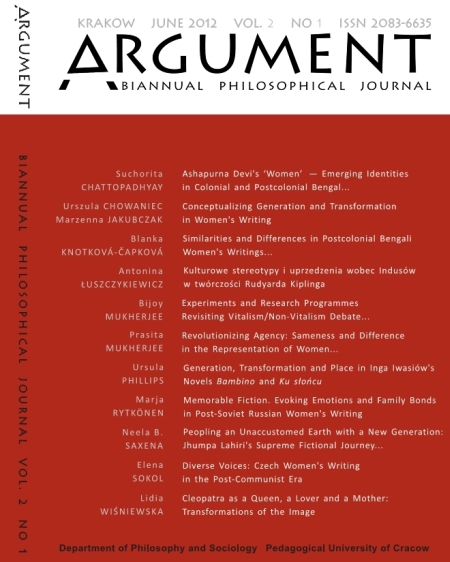Generation, Transformation and Place in Inga Iwasiów’s Novels Bambino (2008) and Ku słońcu (2010)
Keywords:
Polish women’s writing, Inga Iwasiów, postdependency studies, generation, memoryAbstract
This paper discusses two novels by contemporary writer Inga Iwasiów (b. 1963), Bambino (2008) and Ku słońcu [Towards the Sun] (2010), in the context of geopolitical, ideological, social and psycho-cultural transformations as they specifically affect different generations of inhabitants of the Polish city of Szczecin (pre-1945 German Stettin) from 1945 until the first decade of the 21st century. Bambino covers the years 1945-1981, but also contains flashbacks to pre-war memory of Stettin and to the suppressed experiences of the new post-war inhabitants, as well as ‘flash-forwards’ to post-1989, post-communist reality; Ku słońcu covers 1981 to the first decade of 2000s. It shows how the novels portray these transformations through the experience primarily of women (but not only) — in Bambino, through the main protagonists: Ula (formerly Ulrike), Anna and Marysia, and through that of the hidden narrator Magda (Marysia’s daughter born in the same year as the author, Iwasiów, 1963); and in Ku słońcu, primarily through the experience of Magda herself, as well as through that of two generations of ‘feminist’ academics: Małgorzata and Sylwia (in which it is hard not to perceive the personal experience of the author, though she is at pains to emphasize elsewhere that her work is a collective biography of the city, not so much of herself). The analysis follows Katarzyna Chmielewska’s supposition that contemporary Polish fiction dealing with the past ‘constantly oscillates between memory and genealogy’, and that it raises raw issues not yet addressed by historians; it also derives inspiration from the new ‘postdependency’ studies proposed by Hanna Gosk and Ryszard Nycz. It also attempts to capture the specific nature of Iwasiów’s use of language, her style of feminism, her method of portraying place, and the connections in her prose between place and memory.


